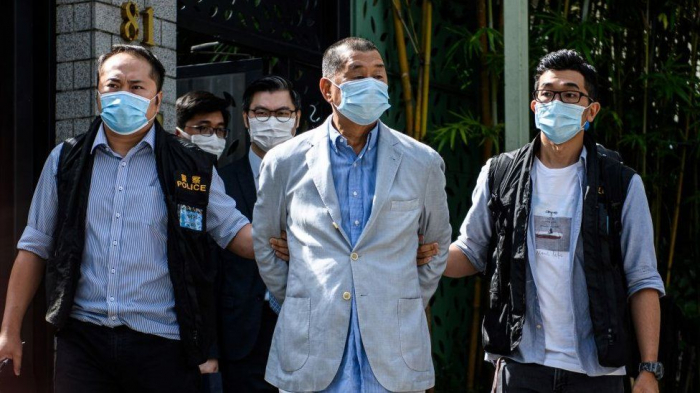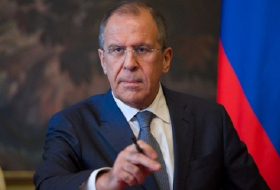Seven of Hong Kong's most prominent pro-democracy campaigners have been convicted of unlawful assembly relating to huge demonstrations two years ago.
Media tycoon Jimmy Lai and veteran politician Martin Lee were among those found guilty of organising an unauthorised march.
All seven had pleaded not guilty but now face time in prison.
A small group of protesters outside the court held posters denouncing political persecution.
Two other activists had earlier already pleaded guilty and face up to five years in jail.
The group of seven will be sentenced at a later date. Some of them are also facing other charges, including under the Beijing-imposed national security law, which was introduced in response to 2019's mass protests and carries severe penalties, including long prison terms.
What is China's 'patriot' plan for Hong Kong?
After waves of pro-democracy protests, Beijing is increasingly cracking down on the city's rights and freedoms.
China had earlier this week passed sweeping changes to Hong Kong's electoral rules, which will allow prospective MPs to first be vetted by a pro-Beijing committee.
What did the seven do?
Alongside Mr Lai and Mr Lee, former lawmakers Margaret Ng, Cyd Ho Sau-lan, Lee Cheuk-yan, Albert Ho Chun-yan and Leung Kwok-hung, known as "Long Hair", were convicted.
The campaigners were accused of participating in an unauthorised assembly on 12 and 18 August 2019, when Hong Kong was embroiled in months of anti-government protests.
The defence team say that freedom of assembly is protected under Hong Kong's constitution, and that authorities had approved a demonstration which then grew into the unauthorised march.
The prosecution argued that freedom of assembly - while granted in the constitution - was not absolute in Hong Kong.
Who are the defendants?
Mr Lai is one of the most prominent supporters of Hong Kong's pro-democracy movement - and faces separate charges under Beijing's national security law.
Estimated to be worth more than $1bn (£766m), he made his initial fortune in the clothing industry and later ventured into media and founded Next Digital.
Next Digital publishes Apple Daily, a well-read tabloid which is frequently critical of Hong Kong and mainland Chinese leadership.
In a local media landscape increasingly fearful of Beijing, Mr Lai is a persistent thorn for China - both through his publications and writing.
It has seen him become a hero for many residents in Hong Kong but on the mainland he is viewed as a traitor who threatens Chinese national security.
Interviewed by the BBC before his arrest earlier in December, he said he would not give in to intimidation.
"If they can induce fear in you, that's the cheapest way to control you and the most effective way and they know it. The only way to defeat the way of intimidation is to face up to fear and don't let it frighten you."
Martin Lee, the 82-year old veteran of Hong Kong's struggle for more political rights, is the founding chairman of the Democratic Party.
Known as the father of Hong Kong democracy, he said in 2020 he was "very much relieved" by his arrest.
"For so many years, so many months, so many good youngsters were arrested and charged, while I was not arrested. I feel sorry about it," he added.
Many of the seven have been at the heart of the pro-democracy struggle for years dating back to the Umbrella Movement in 2014 and even further.
Leung Kwok-hung, know as "Long Hair" was a member of the city's parliament, the Legislative Council (LegCo) and even once tried to run as Chief Executive, the territory's highest office.
Margaret Ng was a key figure in the Civic Party, another opposition group pitted against Beijing's rising influence and also served several years in LegCo.
More about:
















































